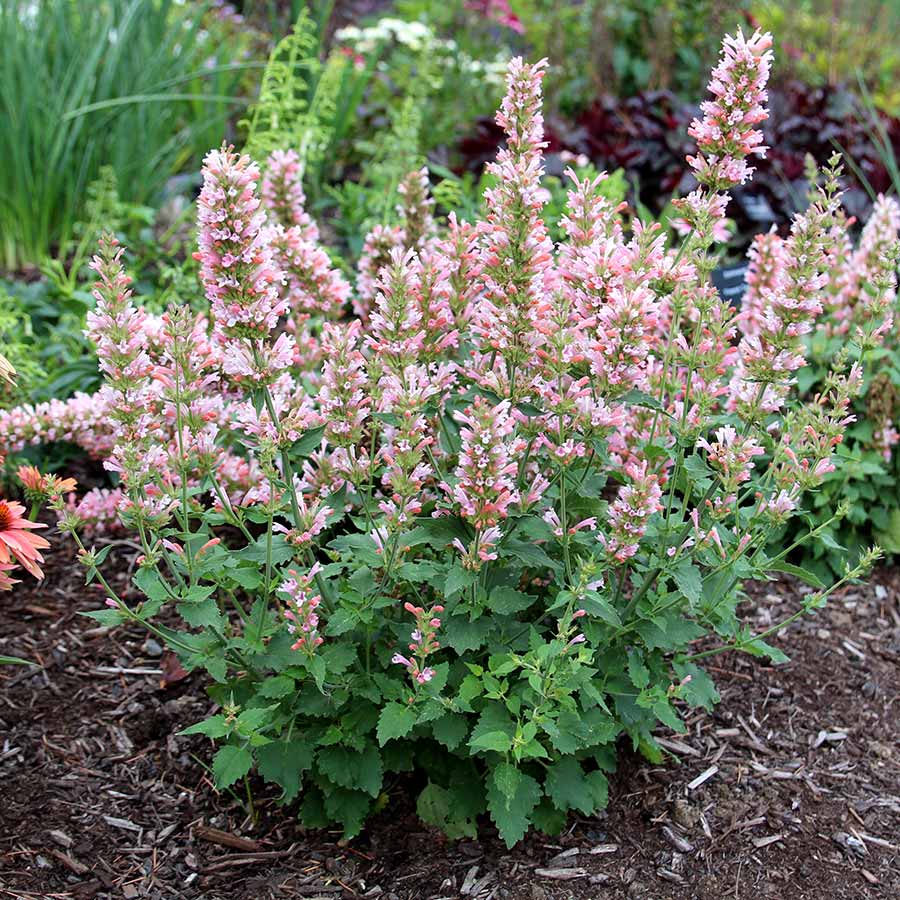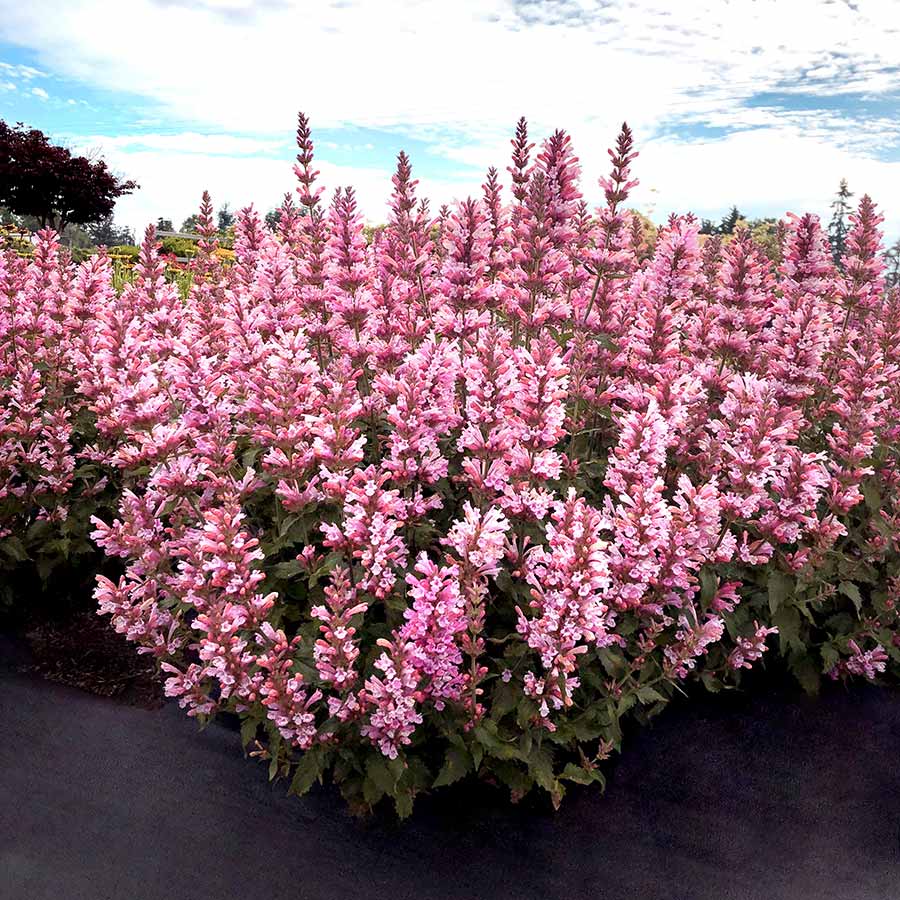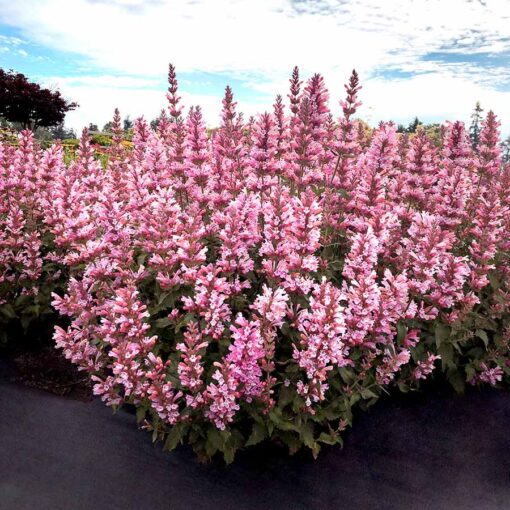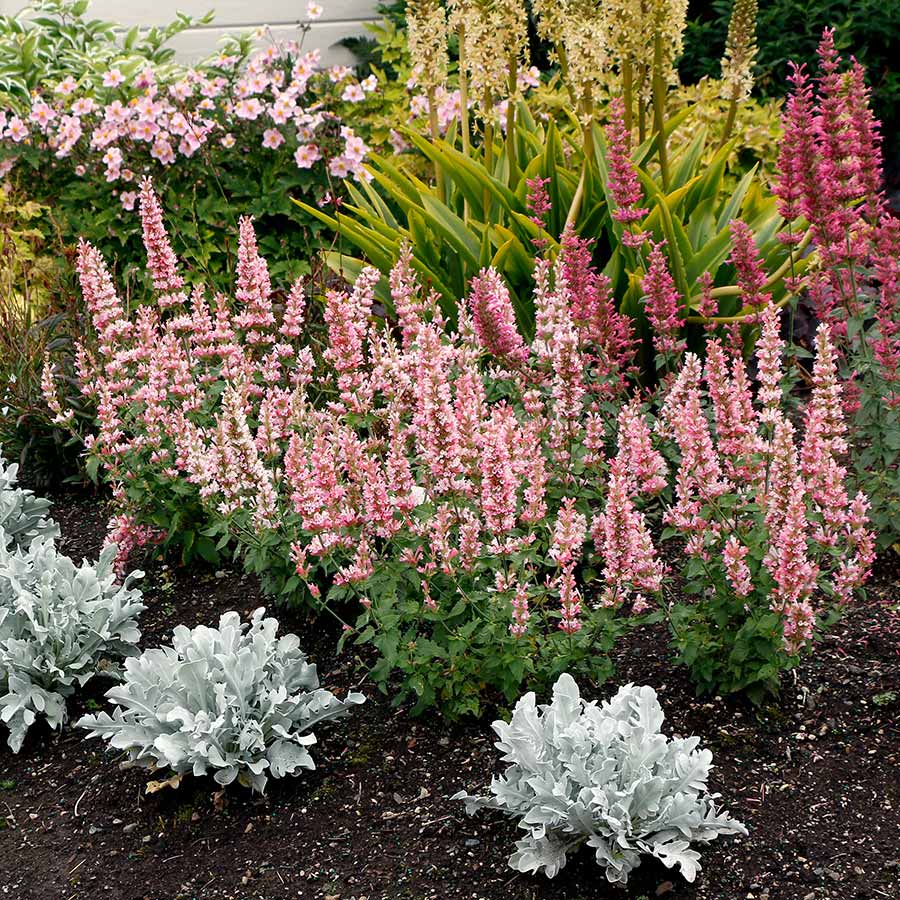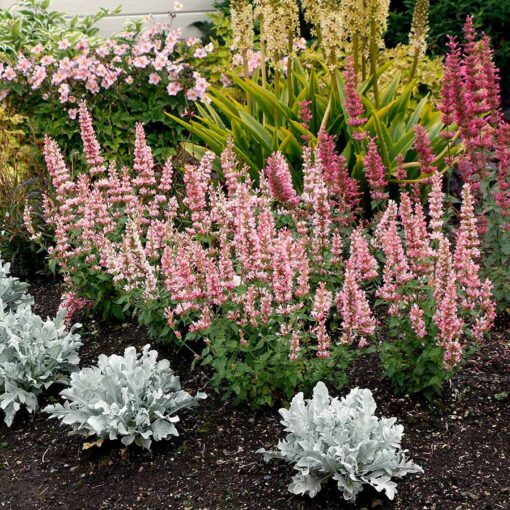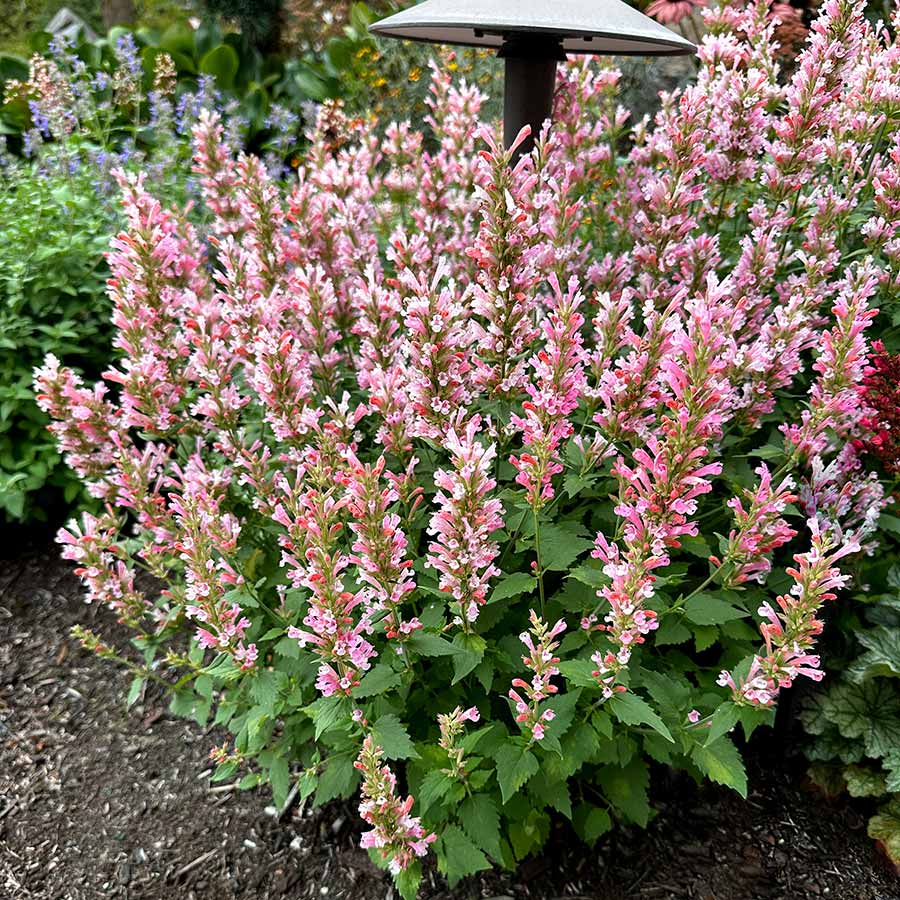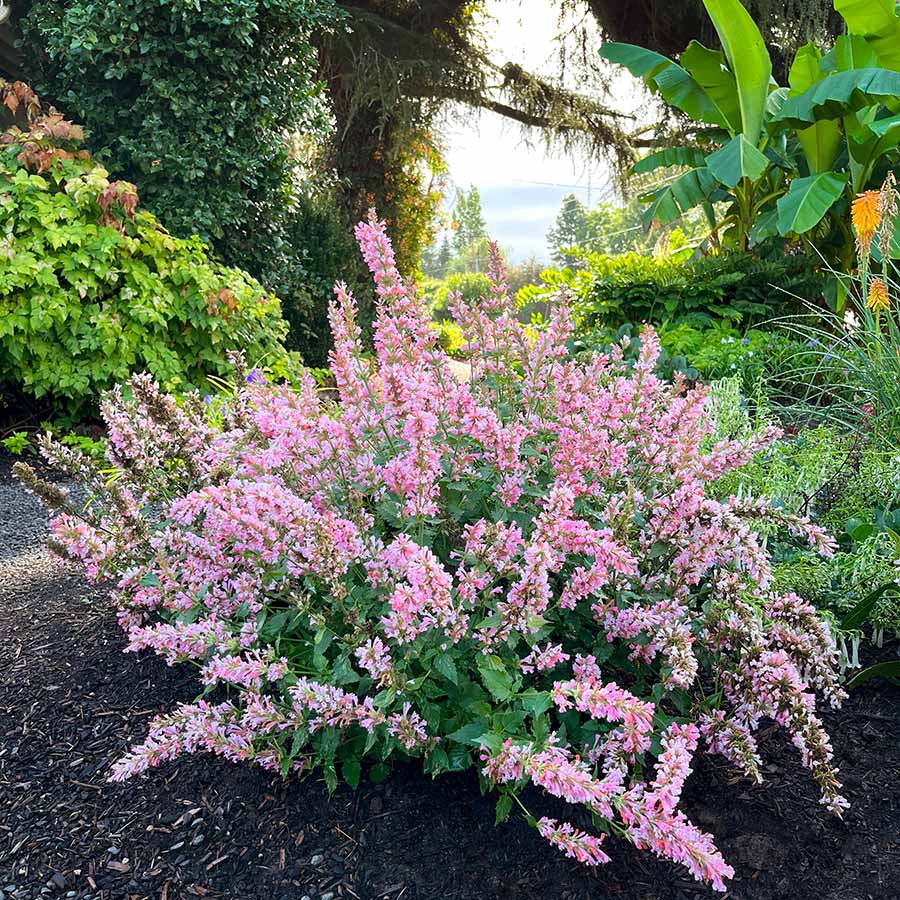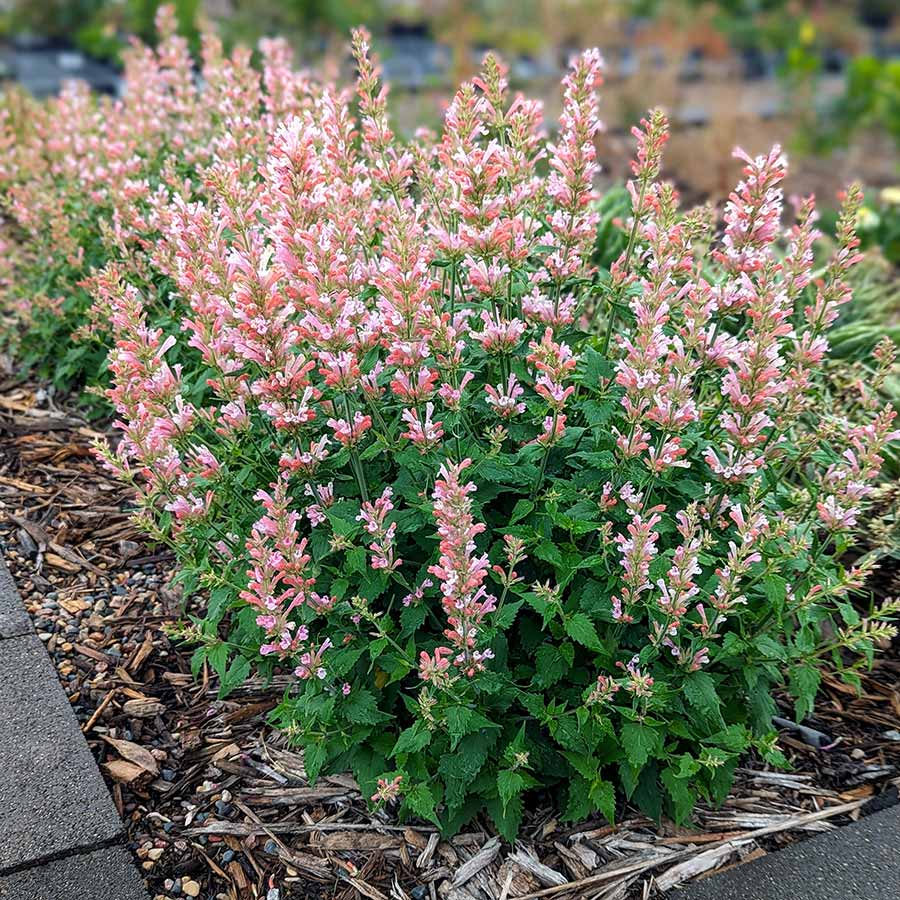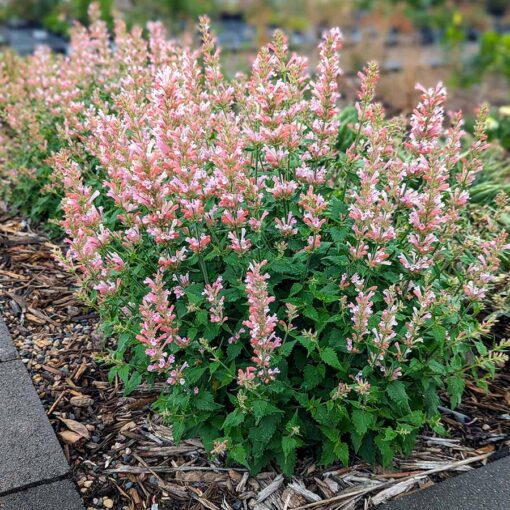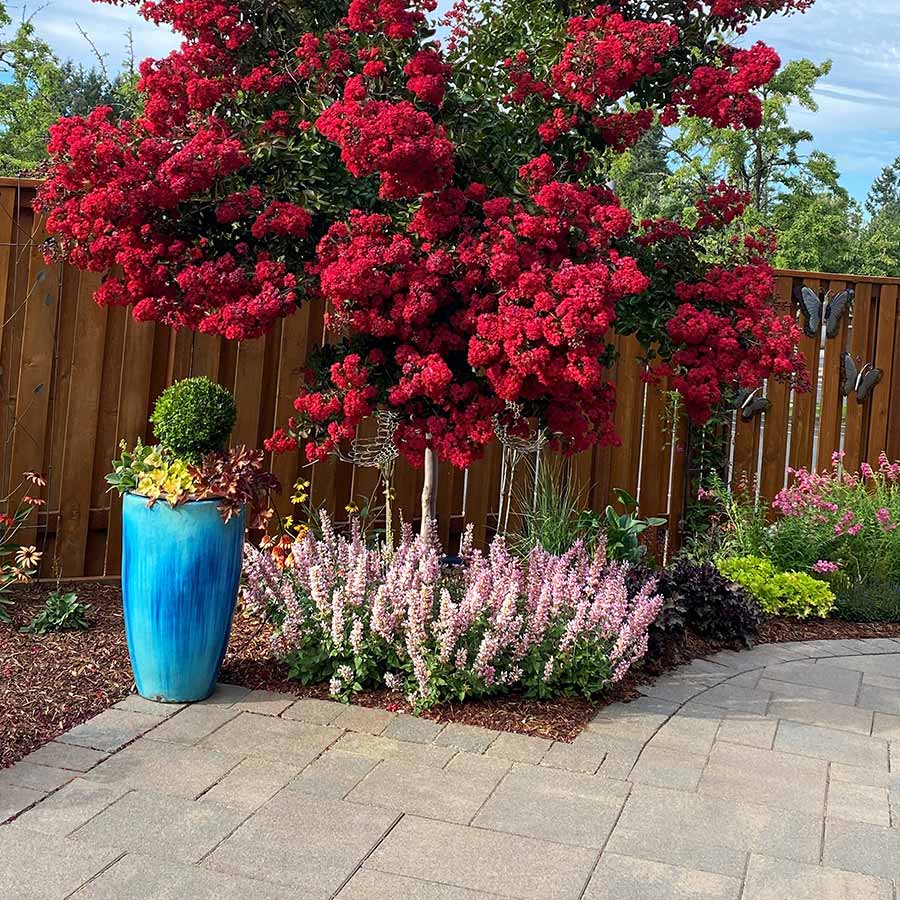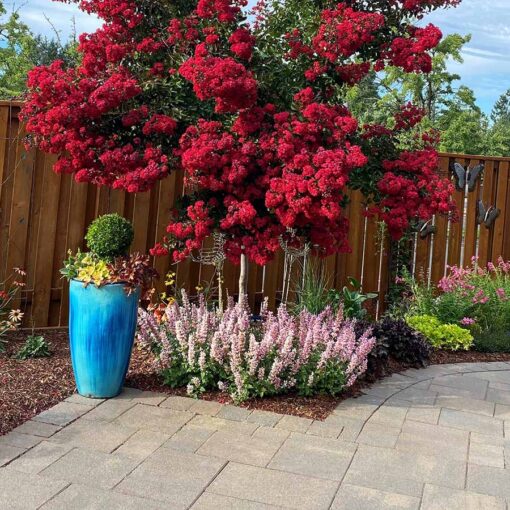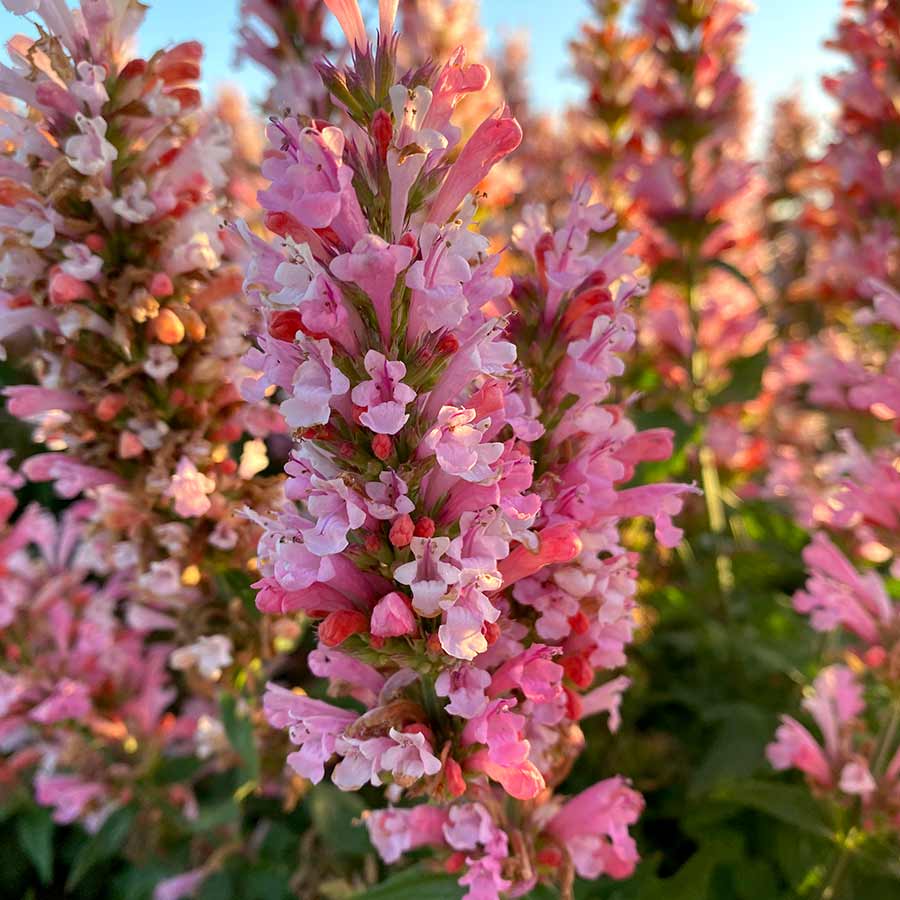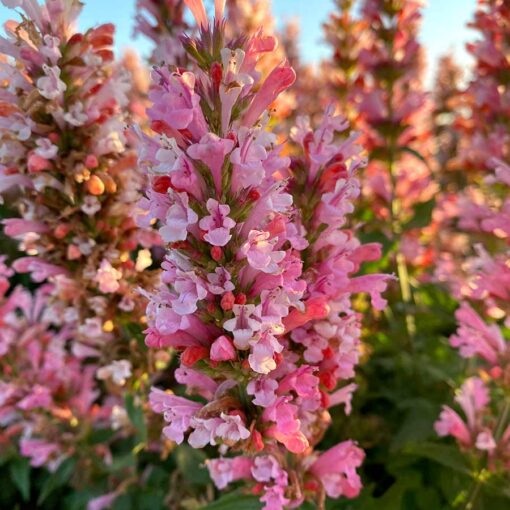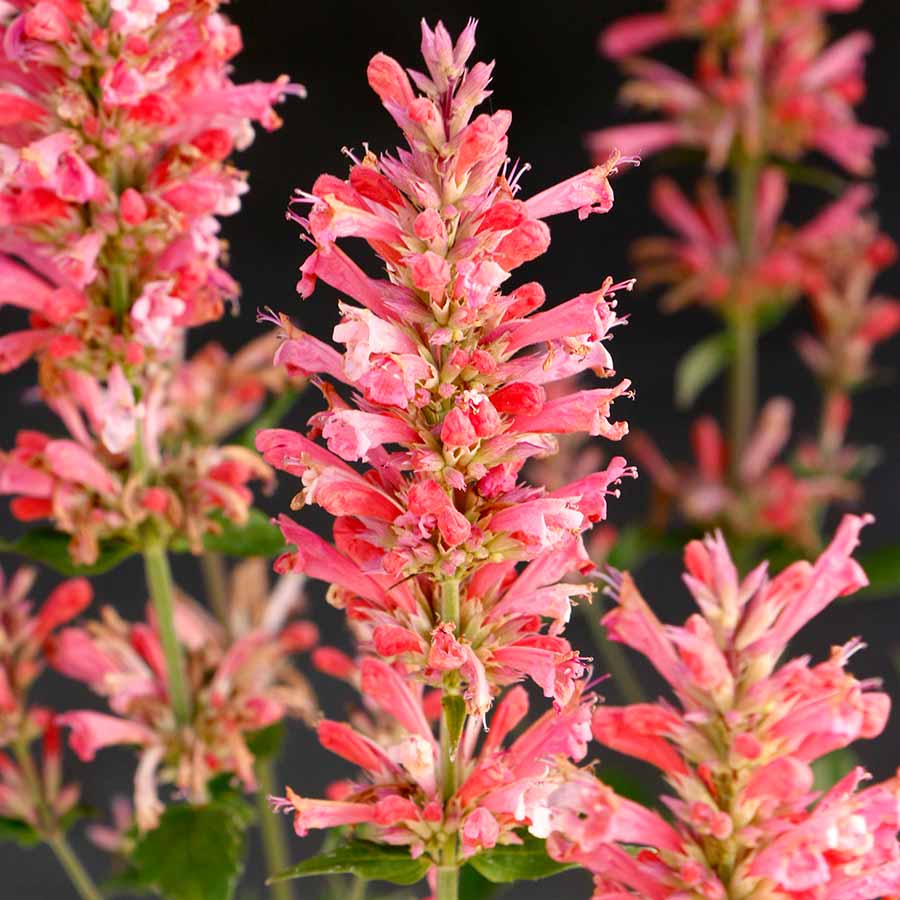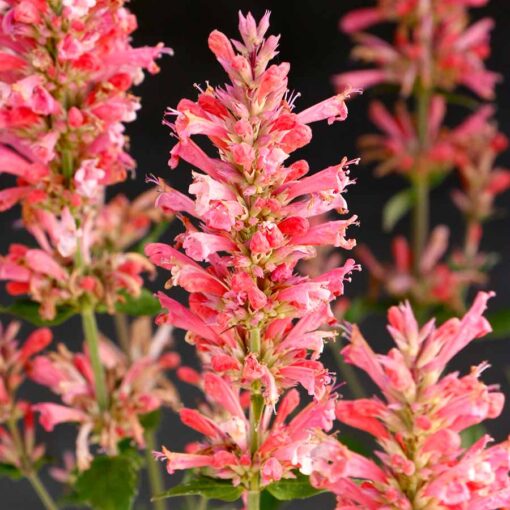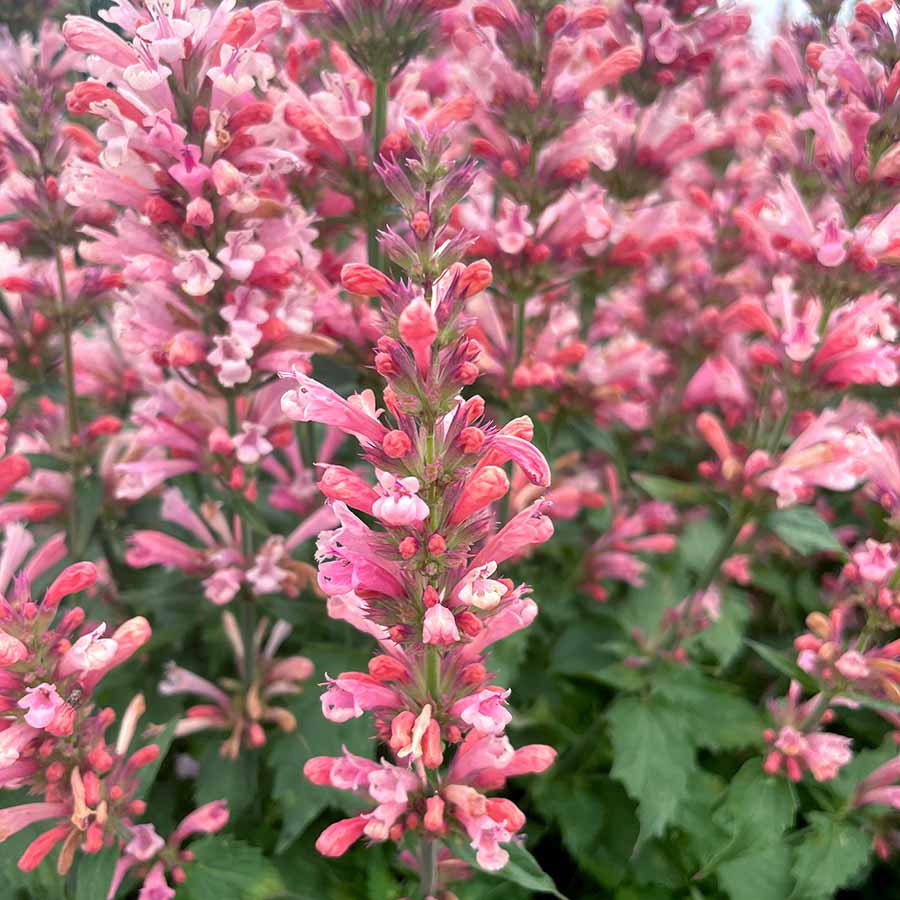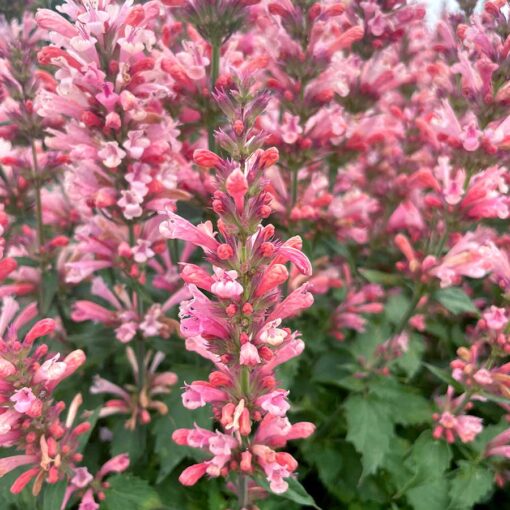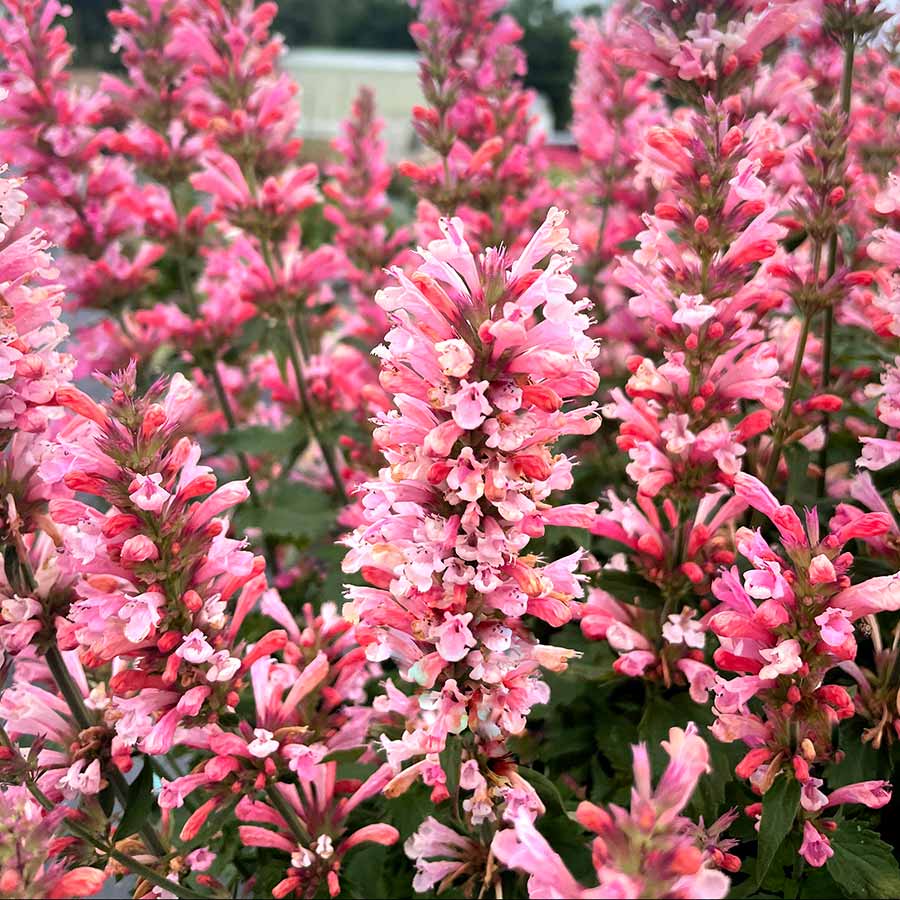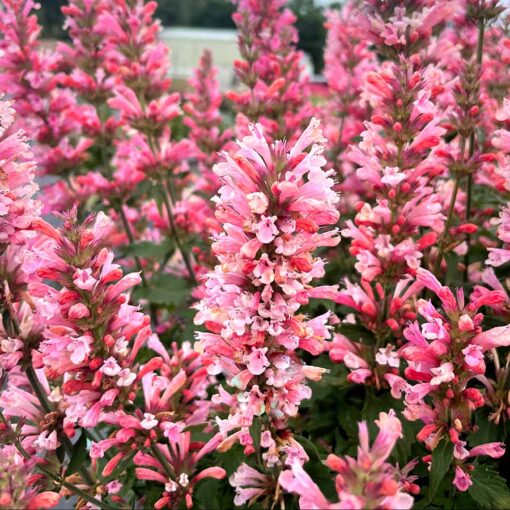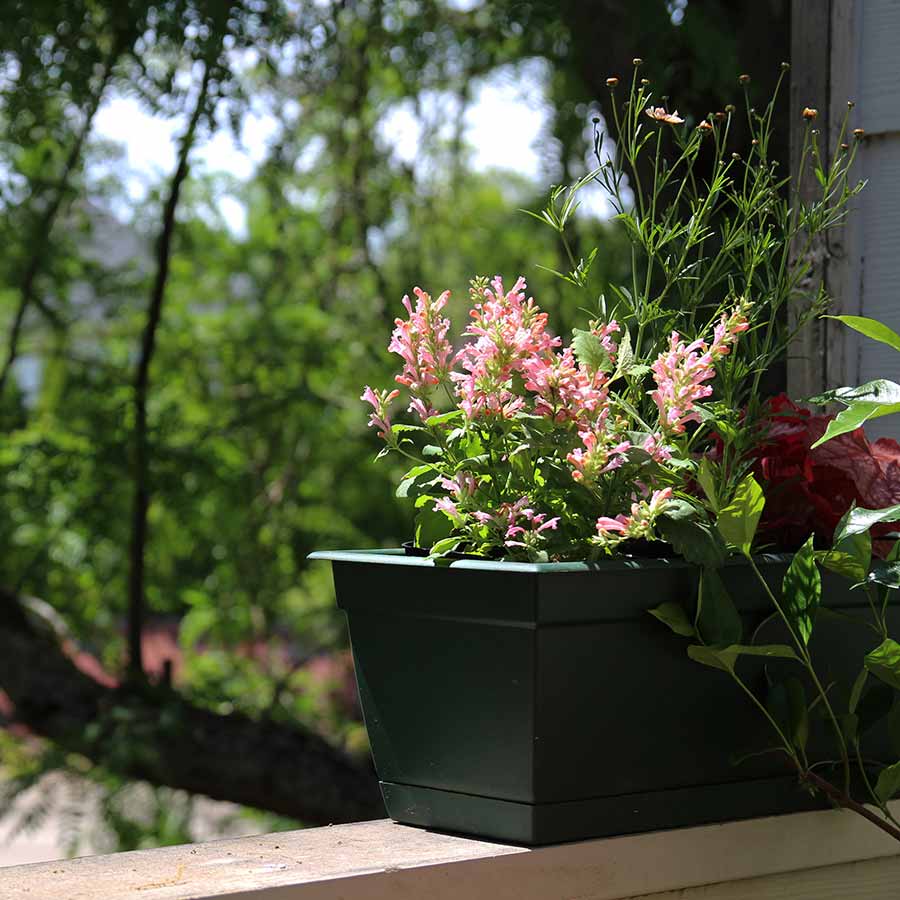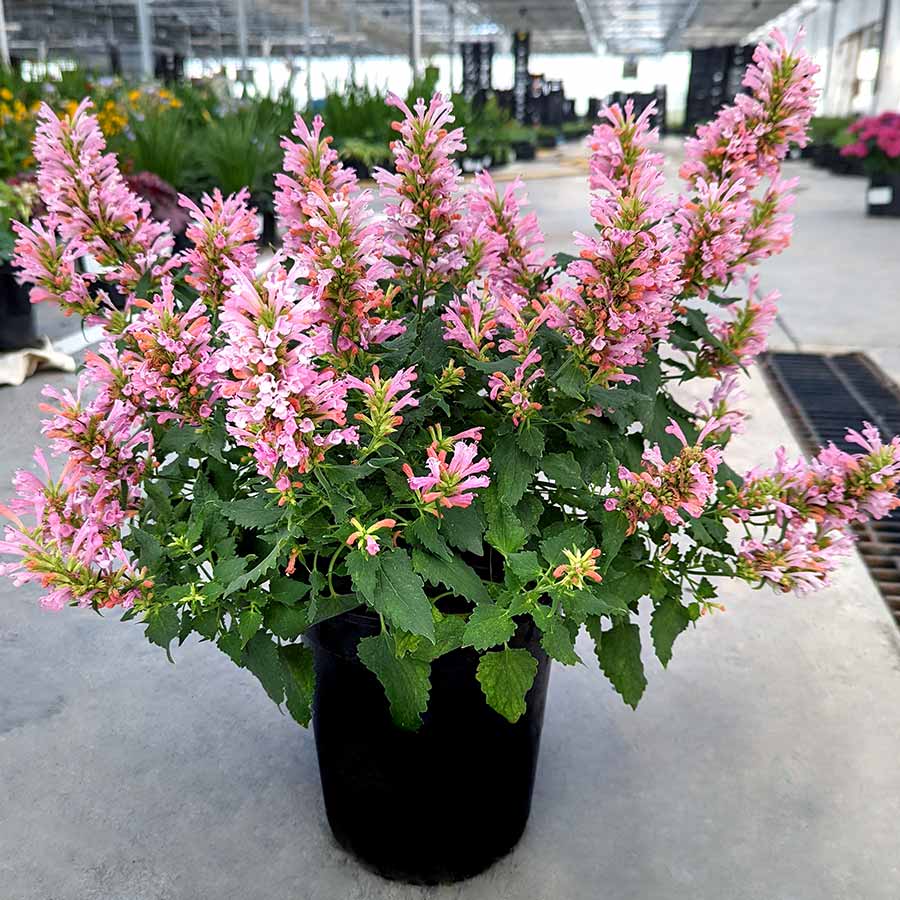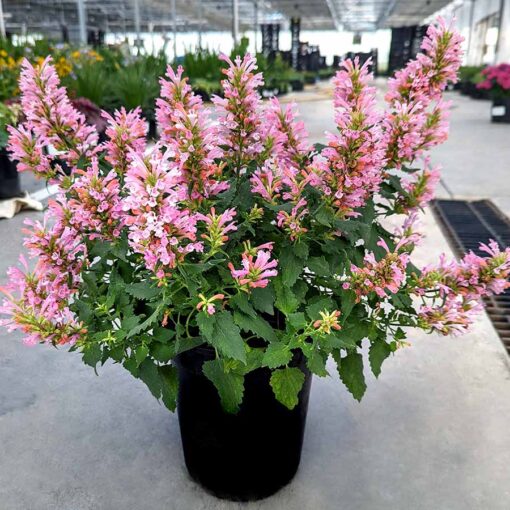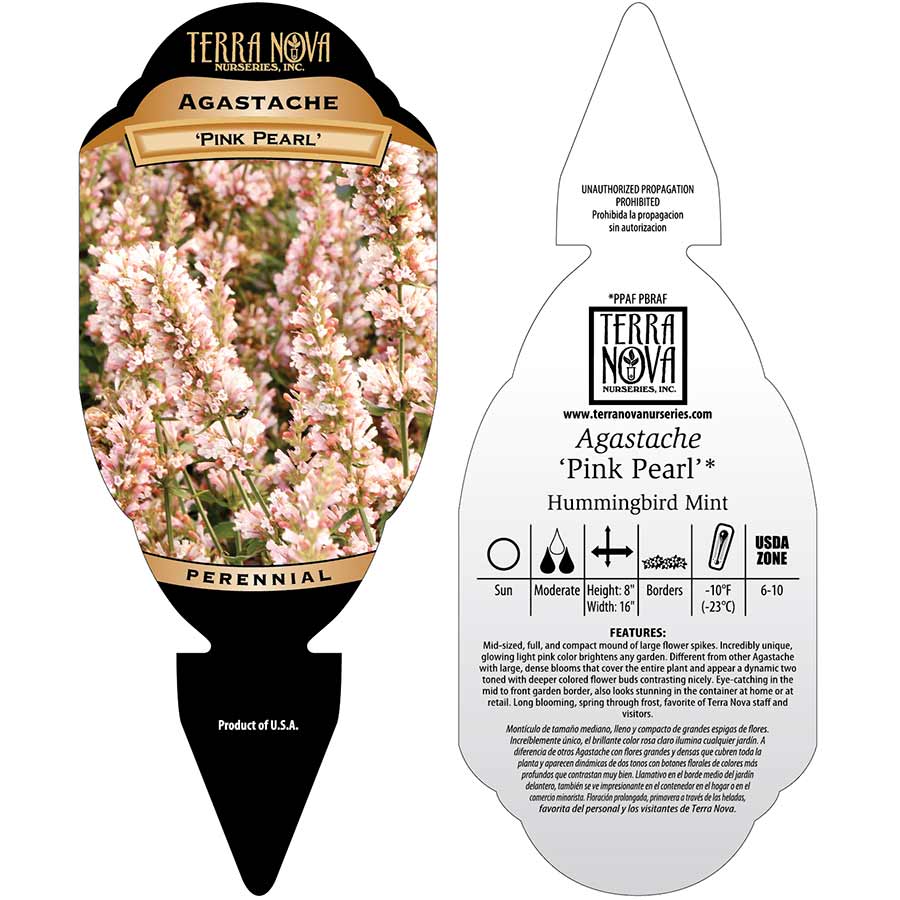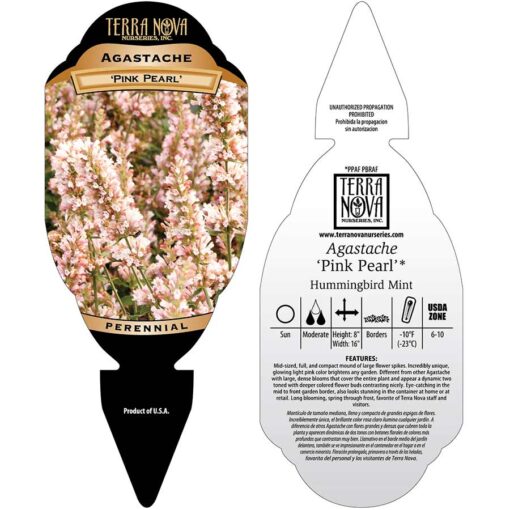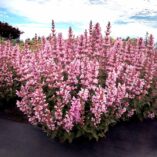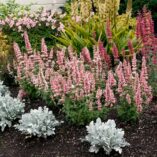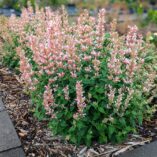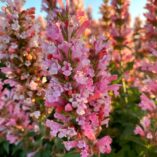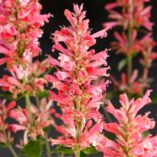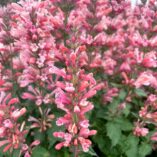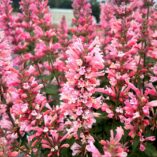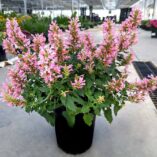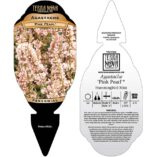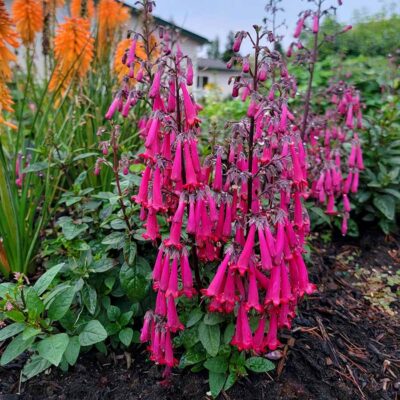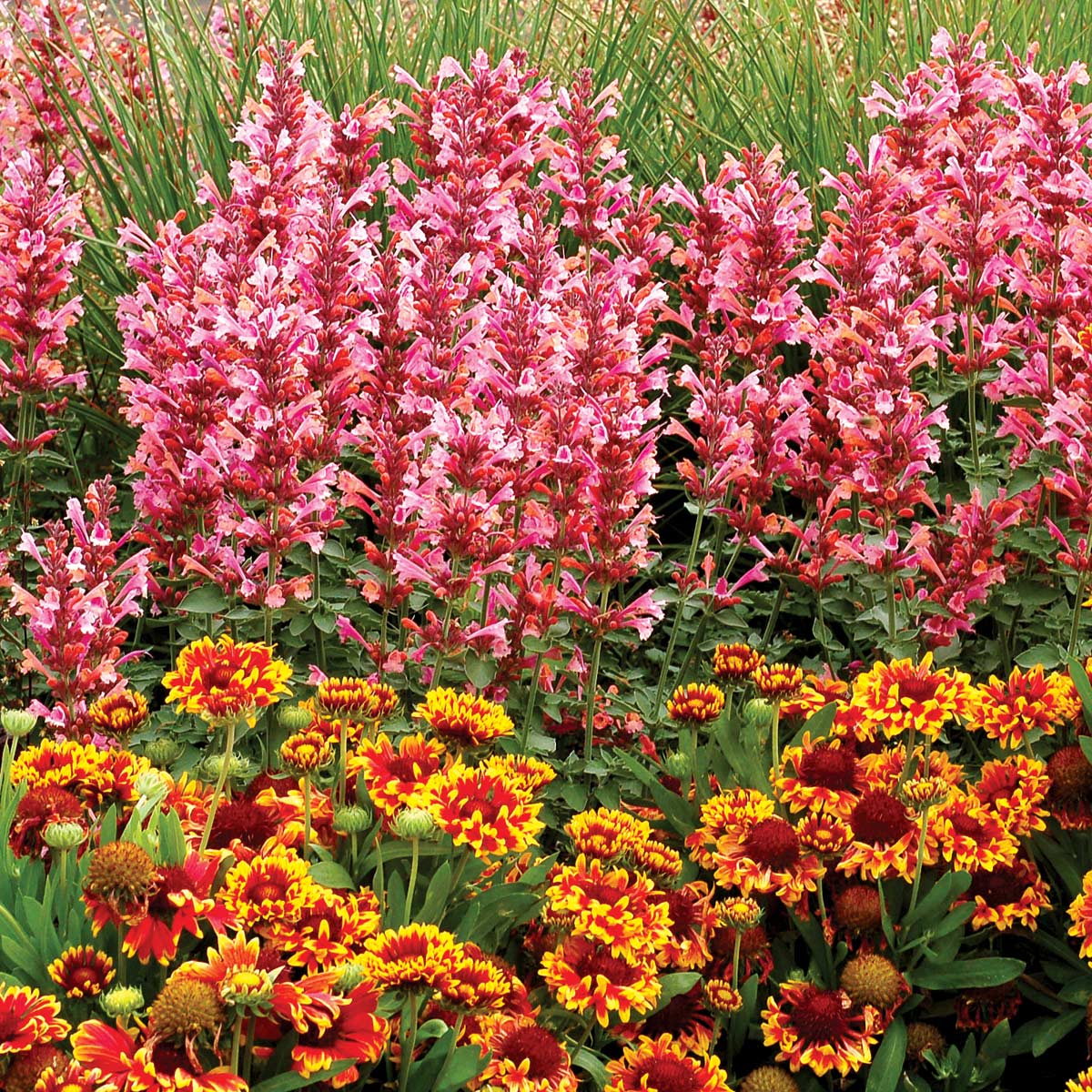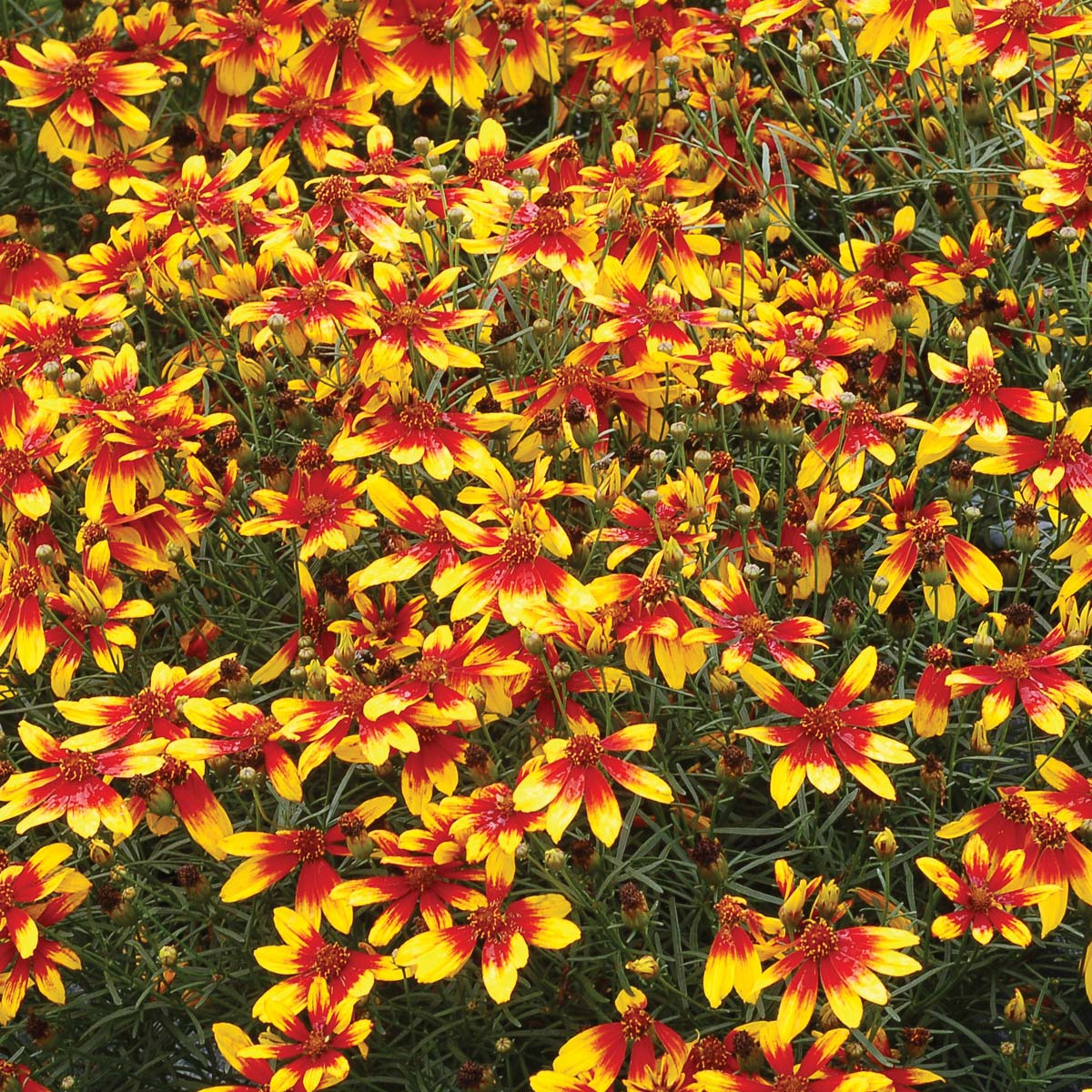| Common Name | Hummingbird mint |
|---|---|
| Family | Lamiaceae |
| Genus | Agastache |
| species | -- |
| Plant Type | Perennial |
| US Patent # | PPAF |
| EU Grant # | PBRAF |
| Bloom Time | June, July, August, September |
| Flower Color | Pink |
| Foliage Color | Green |
| Dormancy | Winter |
| Exposure | Full Sun |
| Growth Habit | Mounding |
| Growth Rate | Fast |
| Hardiness Zone | 6, 7, 8, 9, 10 |
| How Different? | -- |
| Landscape Value | It is a great perennial color spot for summer bloom. It is drought tolerant once established. It attracts hummingbirds. |
| Most Active Growing Season | Spring |
| Persistence | Deciduous |
| Size (HT/W/FL HT) | 8" / 16" / 16" |
| Soil (Garden) | Best in well drained, fertile soil. Needs excellent drainage to overwinter. Mineral soils are fine. |
| Water (Garden) | Average |
| Special Uses | Deep South, Deer Resistant, Fragrant, Hummingbird Attractor, Low Water Usage, Pollinator Attractor |
| Comments | Easy to grow with good drainage. |
Agastache ‘Pink Pearl’
Mid-sized, full, and compact mound of large flower spikes. Incredibly unique, glowing light pink color brightens any garden. Different from other Agastache with large, dense blooms that cover the entire plant and appear a dynamic two toned with deeper colored flower buds contrasting nicely. Eye-catching in the mid to front garden border, also looks stunning in the container at home or at retail. Long blooming, spring through frost. TERRA NOVA® staff and visitor FAVORITE!
USDA Hardiness Zone(s): 6-10
Size (HT/W/FL HT): 8″ / 16″ / 16″
Exposure: Full Sun
Bloom Time(s): June, July, August, September
| Water (Greenhouse) | Dry moderately between waterings. |
| EC | 1.5 – 2.0 |
| pH | 5.5 – 6.5 |
| Fertility Needs | 100 – 150 ppm |
| Notes | Long days benefit overall plant vigor and flowering. Pinch at transplant is beneficial. |
| Finish Time to 4″ | 6 – 8 weeks |
| Finish Time to Gallon | 10 – 12 weeks |
| Day Length for Flowering | Facultative Long Day |
A tender perennial with aromatic leaves and colorful flower spikes all summer long. While traditional varieties have blue or purple colored flowers, newer varieties feature bold colors such as red and orange. In warm climates, it comes back consistently each year. In cold climates is self-sows readily making it an annual addition to your garden. The flowers are attractive to hummingbirds, butterflies and bees, while the anise-flavored leaves can be used in teas and cooking.
Planting
Plant in spring after all danger of frost has passed. You can plant any time until early summer. Fall planting will stay dormant all winter and sprout at the appropriate time in spring.
Culture
Light: Grows and flowers best in full sun. They will survive part shade, especially afternoon shade in warmer climates, but may not flower as well.
Soil: Grows best on fertile, well-drained soils. It likes a soil close to neutral and in areas with acidic soils will benefit from the addition of lime.
Spacing: 4 to 6 weeks before a last frost date. Move plants outdoors when the transplants are at least 4 inches tall. Space plants 12 to 15 inches apart. You can also plant outdoor in rows, thinning to 1 foot apart after 4 leaves form.
Watering: Agastache is a drought-tolerant herb, especially once established. Keep the soil moist for germination and seedling growth. Once mature, these mint family plants are tough and can go weeks without watering.
Fertilizer: Amend the soil before planting with compost. Additional fertilizer usually isn’t needed. In fact, too much fertility will cause the plant to flower less and later, and reduce the essential oils in the leaves and flowers. It also can cause the stems to become floppy and fall over more easily.
Pruning: Trim back plants by pinching the new growth in spring to promote bushier growth. Deadhead (trim) spent flower stalks to keep the plant tidy. If growing as a perennial, don’t prune or deadhead past midsummer. Pruning too late in the season will stimulate new growth in fall that may not survive the winter.
Growing Agastache can be done indoors as starts, or you may directly plant seeds into the garden in spring. Flowers will be produced more quickly on plants that are started indoors in May and transplanted in early summer. The Agastache plant is hardy in USDA plant hardiness zones 4 to 10. Most plants can survive temperatures down to 10 F. (-12 C.) if heavily mulched.
Provide plenty of water when the plants are establishing, but they can mostly fend for themselves thereafter.
Agastache are usually tall plants and their lengthy stalks show best at the back of a perennial border or lining a fence. They can be used in container gardens or in cut flower gardens, as the Agastache flowers are long lasting.
Growing Agastache in the butterfly garden not only attracts those beautiful insects, but pollinators and hummingbirds. Deer and rabbits do not seem to enjoy Agastache, which makes it ideal for the woodland garden.
Can I grow agastache in a container?: Yes, Agastache is fine for containers.
Is Agastache a good pollinator plant?: It is a great pollinator plant, and especially attractive to bees and hummingbirds as well as butterflies.
Are the flowers edible?: Yes, you can make a tea from them.
Is Agastache deer resistant?: Some varieties are deer resistant.
How can I use agastache in my garden?: Agastache is a terrific border plant, ideal for cutting, a great choice for the pollinator garden, even for the herb garden. Any place with good well-drained soil and full sun.
All photography is property and © of TERRA NOVA® Nurseries, and is only to be used for promotional material related to TERRA NOVA® products.
Please credit TERRA NOVA® Nurseries in the following manner:
Photo(s) courtesy of TERRA NOVA® Nurseries, Inc.
www.terranovanurseries.com
  |
  |
  |
  |
  |
  |
  |
  |
  |
  |
  |
  |
  |
Our tags are produced using Adobe Illustrator (.ai) format.
  |
Get the latest FREE version of Acrobat® Reader™
here.- November, 2025 – PerishableNews.com: Terra Nova Perennials Prove Performance in 3 Leading U.S. Trial Programs – click here
- June, 2025 – Horticulture: Agastache ‘Pink Pearl’ Is an Easy-to-Grow Perennial for Summer Flowers – click here
- May, 2025 – Real Simple: New to Gardening? Here Are 8 of the Easiest Flowers to Grow, According to Pros – click here
- May, 2024 – Martha Stewart: 15 Full-Sun Perennials That Come Back Bigger and Better Every Year – click here
- April, 2024 – Martha Stewart: 10 Fast-Growing Perennials to Plant in Your Garden – click here
- November, 2023 – FloralDaily: I think it will become a perennial classic – click here
- September, 2023 – Garden Smart: Three Perennials That Bloom in the Heat! – click here
- August, 2023 – Lawn & Garden Retailer: ThinkPlants releases 2023-24 New Varieties Catalog – click here

